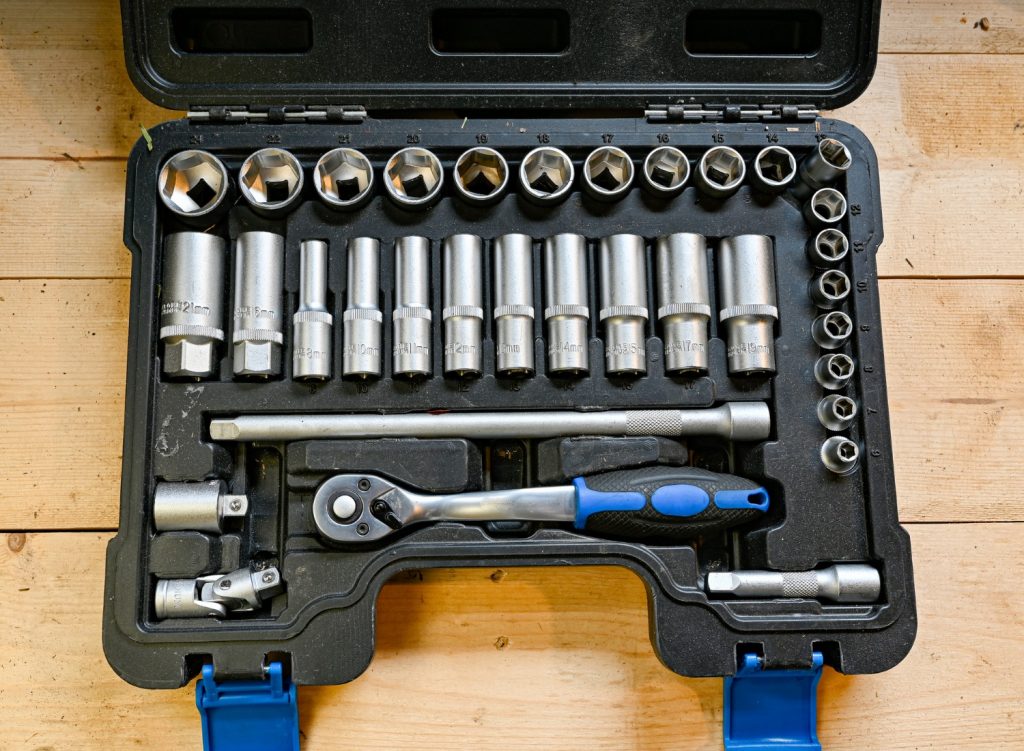Different Types of Sockets and Their Uses

Do you struggle to find the right socket for your next DIY project? In this comprehensive guide, we will explore the fascinating world of sockets and unravel the mystery behind their various types and uses. Whether you’re an experienced handyman or just starting out on your DIY journey, understanding the different types of sockets can make all the difference in the success of your projects.
Each type has unique features and applications, from the trusty standard socket to the versatile deep socket. So, grab your tool belt and join us as we dive into the realm of sockets and discover which ones are essential for your toolkit.
Understanding Basic Socket Terminology
What is a socket?
A socket is a tool to tighten or loosen fasteners such as bolts and nuts. It is designed to fit over the head of the fastener and provide leverage for turning. Sockets are typically used with a ratchet or a wrench.
A brief history of sockets
The socket has a long history that dates back to the early 19th century. It was invented by J.J. Richardson in 1863 and has since become an essential tool in various industries and applications.
Basic socket parts and anatomy
A socket consists of several parts, including the socket body, drive size, socket size, and socket type. The socket body is the main part that fits over the fastener, while the drive size determines the size of the ratchet or wrench to be used. The socket size refers to the size of the fastener it can fit, and the socket type indicates the specific design and purpose of the socket.
How Sockets Work
Sockets provide a secure grip on the fastener head, allowing the user to apply torque or rotational force to tighten or loosen it. The socket fits over the fastener, and when turned with a ratchet or wrench, it transfers the force from the user to the fastener.
Socket sizes are measured in both metric and imperial units. The most common sizes range from 4mm to 32mm for metric sockets and 3/16 inches to 1 1/4 inches for imperial sockets. Selecting the correct socket size is important to ensure a proper fit and avoid damaging the fastener or the socket itself.
Sockets are subjected to high levels of torque and force during use, so choosing sockets made from high-quality materials such as chrome vanadium steel is crucial. The strength and durability of sockets ensure they can withstand the pressure without breaking or wearing out.
Main Types of Sockets
- Impact sockets: Impact sockets are designed to handle high torque levels generated by impact wrenches. They are made from tough materials and have thicker walls to withstand repetitive impacts. Impact sockets are commonly used in automotive repair and heavy-duty applications.
- Chrome sockets: Chrome sockets, also known as chrome vanadium sockets, are made from a durable alloy that combines chromium and vanadium. They have a polished chrome finish that provides corrosion resistance and a sleek appearance. Chrome sockets are versatile and suitable for a wide range of applications.
- Spark plug sockets: Spark plug sockets are designed specifically for removing and installing spark plugs in vehicles. They have a rubber insert or a magnetic feature to hold the spark plug during installation or removal securely. Spark plug sockets come in various sizes to fit different spark plug types.
- Socket bits: Socket bits, also known as bit sockets, are designed to hold and turn screwdriver bits. They are commonly used in applications that require both a socket’s torque and various screwdriver bits’ versatility. Socket bits come in different drive sizes and can accommodate different types of bits.
Socket Sets: An Overview
What are socket sets?
Socket sets are collections of sockets in various sizes and types, typically accompanied by a ratchet or a wrench. They come in organized cases or trays that allow for easy storage and transport. A socket set provides a comprehensive range of sockets for different applications, saving time and effort when working on various projects.
Why invest in a socket set?
Investing in a socket set is a practical choice for professionals and DIY enthusiasts. A socket set provides a wide range of socket sizes and types, ensuring compatibility with different fasteners. A complete set eliminates the need to purchase individual sockets and allows for efficient and organized work.
Factors to consider when buying a socket set
When buying a socket set, it is important to consider factors such as the quality of the sockets, the range of sizes and types included, and the drive size compatibility with existing tools. Choosing a reputable brand that offers reliable warranties and customer support is also essential.
Final Thoughts
The world of sockets is vast and diverse, with each type serving a specific purpose in various industries and applications. Investing in a high-quality socket set is a wise choice for both professionals and DIY enthusiasts, as it provides a comprehensive range of socket sizes and types, saving time and effort when working on different projects.
Additionally, proper care and maintenance of sockets, including regular cleaning, lubrication, and storage in a clean and dry environment, will ensure their longevity and performance. So, whether you’re a professional mechanic working in the automotive industry or a DIY enthusiast tackling home repair projects, having a good understanding of the different types of sockets and their uses is essential for efficient and successful outcomes.
